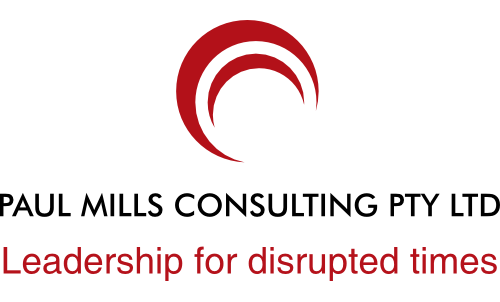Last year, I participated in a panel for leaders in the Macquarie Group Legal and Compliance Division, on the topic of resiliency. There was a keen appetite in the 100 plus people attending, to understand how to become more resilient, especially given increasing rates of change and complexity and the pressure of modern work and life. Together with the two other panellists, one a Female CEO Winemaker and the other, a Physiotherapist, we talked about our experiences and fielded questions on how to take life's tough experiences and treat them as opportunities for growth, rather than dwelling in the adversity of the moment. Lawyers tend to deal with a lot of risks, much of their work being focused on fault finding and applying healthy scepticism. They are not alone. Many occupations tend towards this reality, the natural extension of which is pessimism. Pessimism over time can lead to anxiety and rumination, indeed perfectionistic personality types can experience this as a form of inner dialogue and negative self talk which can become pervasive.
For over 15 years, I have been working with a tool from TMS international called the QO2. This stands for the quotient of obstacle to opportunity you perceive as a function of your personality, and includes assessments around hope, optimism versus pessimism, fault finding and multi-pathways thinking. The tool talks to the perils of pervasive pessimism, what the authors dub Eeyore-ism (after the children's book character) and what this means for resiliency, and at the extreme, the possibility of mental health conditions. The authors also make the point that extreme optimism also has its dangers, what they dubbed Pollyanna-ism (again after the children's book), however it is true that optimists are more resilient over time. This has to do with a core view Optimists have that any set-backs they experience are temporary, that there are a range of ways to deal with problems when they occur, and that seeing the best in people can help you to navigate tough situations when they occur.
Resiliency has a number of components, related to our physiological state (health, diet, well-being) and psychological state. The Paul Mills Consulting Pty Ltd Resiliency Report was developed to provide individual insight into personal resiliency across 7 pillars. The report provides an overall resiliency score and interpretation, and the opportunity to reflect on ways to increase resiliency. This is essentially the capacity to grow and become stronger as a result of challenging life events including work events. It is often said that 'what doesn't kill us can make us stronger', but how we learn when tough things happen requires a deliberate mindset. This is called a growth (versus adversity) mindset, and requires a mindful approach to inner dialogue when tough things happen. Martin Seligman, in his book 'Learned Optimism' gifted us the ABCDE model, a way to train yourself to disturb negative thinking when challenging issues emerge.
A stands for adversity,
B for beliefs (what we believe in that moment),
C for consequences (how we act). For example, someone cuts us off in the traffic, we form a negative belief about why this occurred, and then we act based on that negative belief. This is often the response we know as road rage.
D stands for disturbing that thinking with more positive thinking, and
E for energisation - celebrating a more positive response pattern than would otherwise have been the case.
People with low resiliency can be seen as negative and emotionally volatile at work. They can have greater challenges in transitioning during change. They can be tough on themselves and others. I recall one such manager I worked with in banking and finance. He was deeply sceptical of other's intentions, was fault finding and quick to highlight problems with new ideas. His reputation had developed accordingly - behind his back, he was called 'Dr No'. He struggled to understand why his career seemed to have plateaued. He sought help and started to work through his demons, and through a combination of diet, meditation and therapy, he began to change his reality.
Gratitude is a concept often associated with resiliency. Happy people acknowledge what they have and are grateful for these gifts. In a busy world, we often neglect moments to pause and reflect on the advantages that we enjoy. The chase for the next promotion, next deal, next project can come at the expense of taking stock, being happy with our life achievements and enjoying the company of others. Indeed a strong social network is critical to helping us work through life's tough encounters, to make sense of these and realise we are not alone...


